Life
Sign up for our newsletter
We summarize the week's scientific breakthroughs every Thursday.
-
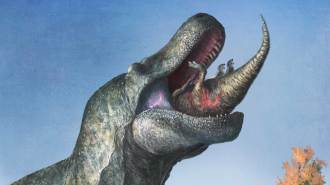 Life
LifeT. rex may have had lips like a modern lizard’s
Dinosaurs like Tyrannosaurus have long been portrayed as lipless, but new research suggests this wasn’t so.
By Jake Buehler -
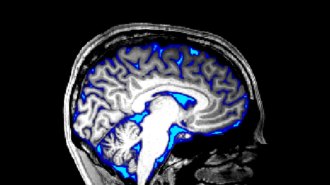 Neuroscience
NeuroscienceScientists triggered the flow of spinal fluid in the awake brain
If future studies confirm these waking waves wash away toxic proteins from the brain, the finding could lead to new treatments for brain disorders.
By Simon Makin -
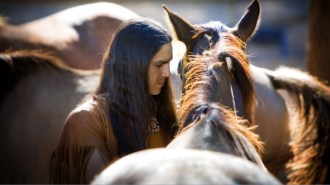 Anthropology
AnthropologyNative Americans corralled Spanish horses decades before Europeans arrived
Great Plains groups incorporated domestic horses into their cultures by the early 1600s, before Europeans moved north from Mexico.
By Bruce Bower -
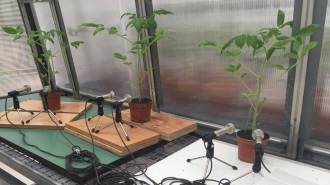 Plants
PlantsStressed plants make ultrasonic clicking noises
Tomato and tobacco plants emit high frequency sounds, which could one day find a use in agriculture, as a way to detect thirsty crops.
By Meghan Rosen -
 Neuroscience
NeuroscienceYour brain wires itself to match your native language
MRI scans of nearly 100 native speakers of either German or Arabic revealed differences in how the language circuits of their brains are connected.
By Elise Cutts -
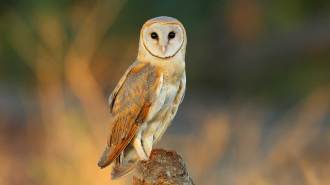 Animals
AnimalsVolcanic sulfur may make barn owls grow redder feathers
Barn owls on volcanic islands tend to have redder plumage than those on nonvolcanic islands, possibly due to an influx of sulfur in the environment.
By Jake Buehler -
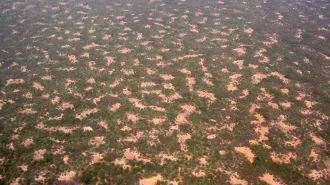 Math
MathChia seedlings verify Alan Turing’s ideas about patterns in nature
New experiments confirm that complex patterns in plants emerge from a model proposed by mathematician Alan Turing.
-
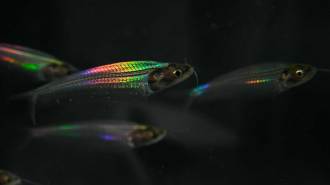 Animals
AnimalsThese transparent fish turn rainbow with white light. Now, we know why
Repeated structures in the ghost catfish’s muscles separate white light that passes through their bodies into different wavelengths.
-
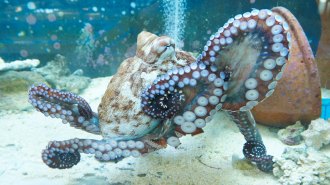 Animals
AnimalsScientists have now recorded brain waves from freely moving octopuses
The data reveal some unexpected patterns, though it’s too early to know how octopus brains control the animals’ behavior, a new study finds.
-
 Genetics
GeneticsDNA from Beethoven’s hair hints at what killed the composer
Many historians suspect Beethoven died from liver failure. A new analysis shows he had a heightened genetic risk for liver disease, researchers say.
By Freda Kreier -
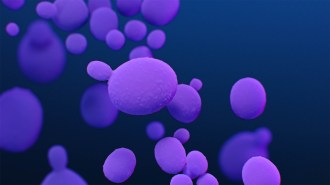 Health & Medicine
Health & MedicineU.S. cases of a deadly fungus nearly doubled in recent years
Though numbers are still small, clinical cases of Candida auris in the jumped 95 percent from 2020 to 2021, a CDC survey finds.
-
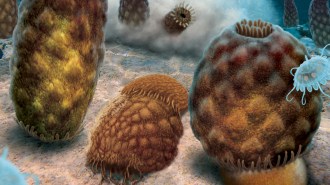 Paleontology
Paleontology310-million-year-old fossil blobs might not be jellyfish after all
An ancient animal called Essexella may have been a type of burrowing sea anemone, a new study proposes.
By Meghan Rosen